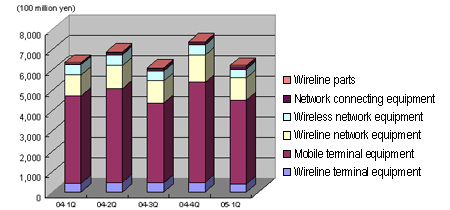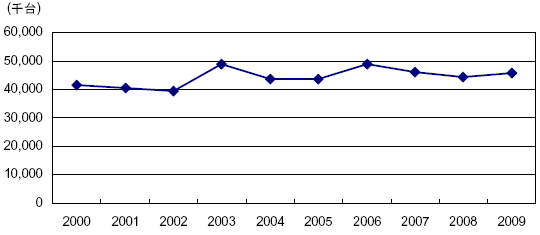Japan Telecommunication Equipment Production and Trade Figures
 The Communications and Information Network Association of Japan has just released a report detailing the overall value of domestic production for Q1-05. It quoted totals for the April–June quarter at 620.3 billion yen, a reduction of 2.4 percent over the same quarter last year. The total value of production excluding cellular phones was 222.4 billion yen, a growth of 2.5 percent year on year. While network equipment and parts, such as routers and hubs, recorded healthy figures due to the switch to IP and broadband networks, cellular phones, which make up two-thirds of the market, dragged the total figure down, resulting in a slight reduction overall.
The Communications and Information Network Association of Japan has just released a report detailing the overall value of domestic production for Q1-05. It quoted totals for the April–June quarter at 620.3 billion yen, a reduction of 2.4 percent over the same quarter last year. The total value of production excluding cellular phones was 222.4 billion yen, a growth of 2.5 percent year on year. While network equipment and parts, such as routers and hubs, recorded healthy figures due to the switch to IP and broadband networks, cellular phones, which make up two-thirds of the market, dragged the total figure down, resulting in a slight reduction overall.
The production figure for cellular phones decreased by 5.4 percent over the same quarter of the previous year to 392.5 billion yen, resulting from fewer new subscribers and a negative rebound from the growth spurt in the January–March 2005 quarter. The July–September quarter is expected to return to positive growth with growing demand for IP network equipment and upgrade sales in conjunction with the expansion of 3G cellular phone services.


